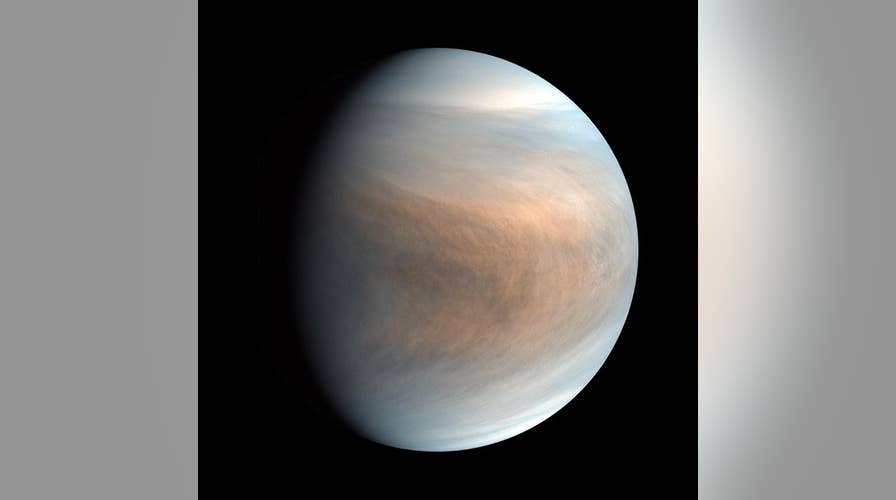Fox News Flash top headlines for September 26
Fox News Flash top headlines are here. Check out what's clicking on Foxnews.com.
Earlier this month, researchers discovered traces of phosphine in the clouds of Venus, a molecule that is only made on Earth as a byproduct of life. A new study, suggests the phosphine may have emanated from our planet.
The research, from the Department of Astronomy at Harvard University, suggests that asteroids that have grazed Earth's atmosphere in the past — believed to be at least 600,000 — might have scraped microbes that live in the atmosphere and brought them to the second planet in the Solar System.
"Although the abundance of terrestrial life in the upper atmosphere is unknown, these planet-grazing shepherds could have potentially been capable of transferring microbial life between the atmospheres of Earth and Venus," the researchers, Amir Siraj and Abraham Loeb, wrote in the study's abstract. "As a result, the origin of possible Venusian life may be fundamentally indistinguishable from that of terrestrial life."
VENUS SHOWS SIGNS OF POTENTIAL ALIEN LIFE IN ITS CLOUDS, SCIENTISTS FIND
The research, which has not yet been peer-reviewed, has been published on the pre-print arXiv server.
The idea put forth in the study by Siraj and Loeb is known as panspermia, the hypothesis that life on one planet originated from microorganisms in outer space and moved to another. In recent memory, it has been suggested that life on Earth may have originated in this manner.
Other theories suggest life could also be originating from comets and asteroids all over the universe.
Several previous studies have discussed the idea of panspermia, including one earlier this year, that suggested comets may have delivered the "essential element" for life on Earth.
In 2019, NASA found sugar molecules on two different meteorites, adding credence to the idea that asteroids play a crucial role in supporting life.
A meteor nicked the atmosphere over southern Australia in December 2017, resulting in a fireball that lasted more than 90 seconds. After traveling more than 800 miles through the atmosphere, this 132-pound meteoroid flew back into space, according to a paper published in December 2019.
Ultimately, additional research is needed to prove the theory, Siraj and Loeb wrote in the study.
"Further work is needed to investigate the existence and abundance of microbial life in the upper atmosphere, particularly at the altitude considered here, ∼ 85 km, at which Earth-grazing object would avoid significant heating," the researchers explained. "In addition, if life is discovered by a direct probe sent into the atmosphere of Venus, it will be necessary to calibrate the abundance of life as a function of altitude on Venus."
VENUS IS A 'RUSSIAN PLANET,' KREMLIN TOP SCIENTIST CLAIMS
Venus, which has been called "Earth's evil twin," has an extremely harsh climate, with a surface temperature of 864 degrees Fahrenheit. It's likely too hot to support life, but NASA has recently said that it intends to explore the planet. In July, researchers revealed that Venus has nearly 40 active volcanoes on its surface.
Separately in July, a number of researchers argued that going to the second planet in the Solar System could have benefits for a manned mission to Mars.
In late 2019, NASA said it was working on a stingray-like spacecraft to explore the planet, which has more volcanoes than any other celestial body in the Solar System.

